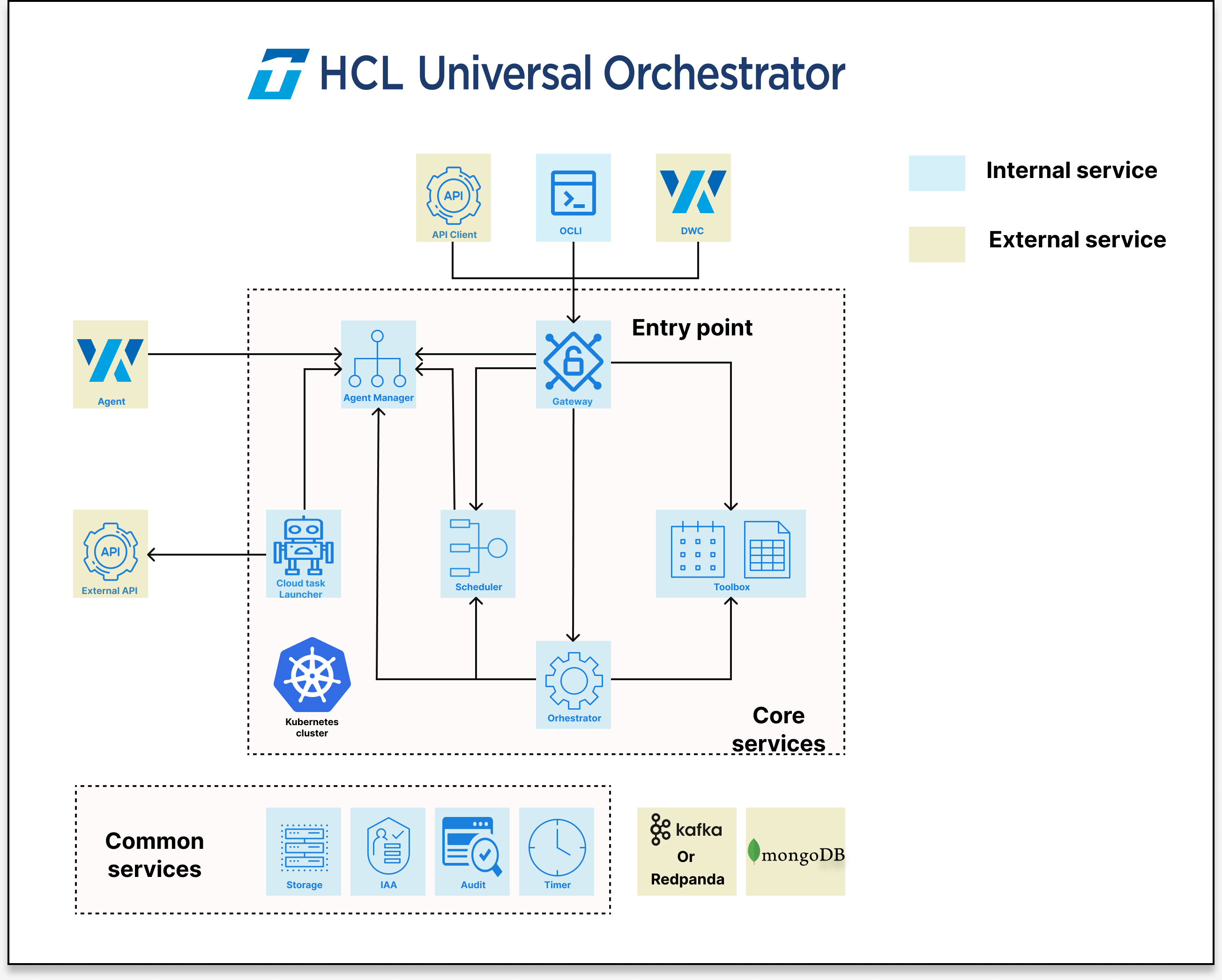HCL Universal Orchestrator architecture
HCL Universal Orchestrator is a cloud-native orchestration platform which can run hybrid processes in the cloud, on Kubernetes, and on-premises. The active-active multi-server architecture with automatic workload distribution makes it highly available.
HCL Universal Orchestrator is an orchestration and scheduling platform that enables you to schedule and run the plan defined for every phase of production. The architecture for HCL Universal Orchestrator is based on microservices deployed in containers on Kubernetes. It is an architectural pattern where multiple services are loosely coupled to deliver specific functionalities. Microservices have different responsibilities, such as managing definitions, orchestrating job streams, managing agent connectivity, or waking up other services at a specific time.
The microservices used to perform the actions for HCL Universal Orchestrator are stateless and
support deploying the services to any number of servers. Because the workload is
automatically distributed, you do not need to set up any pre-requisite for the
architecture and thus reduce the cost. The dynamic scaling capabilities of HCL Universal Orchestrator provide a high
level of reliability. This helps you to create your own automation environment without
any external assistance. The services, both external and internal that are part of the
overall structure of HCL Universal Orchestrator are shown
below.
The role of each microservice in HCL Universal Orchestrator is described in Server microservices.
- Any API client.
- Command line. For more information, see Orchestration CLI.
- Web interface. For more information, see Dynamic Workload Console overview.
Jobs are run by the Cloud task launcher and interact with any external API if required, to perform the required action. You can use the HCL Workload Automation agent to run executable jobs and thus extend the scope of HCL Universal Orchestrator.
Microservices in HCL Universal Orchestrator architecture support both synchronous and asynchronous messaging. Kafka and Redpanda, the open-source data streaming platforms are used for communication or internal messaging between microservices. This provides low latency and better scalability. The other external services compatible with HCL Universal Orchestrator are MongoDB and Azure Cosmos DB for MongoDB to store data.